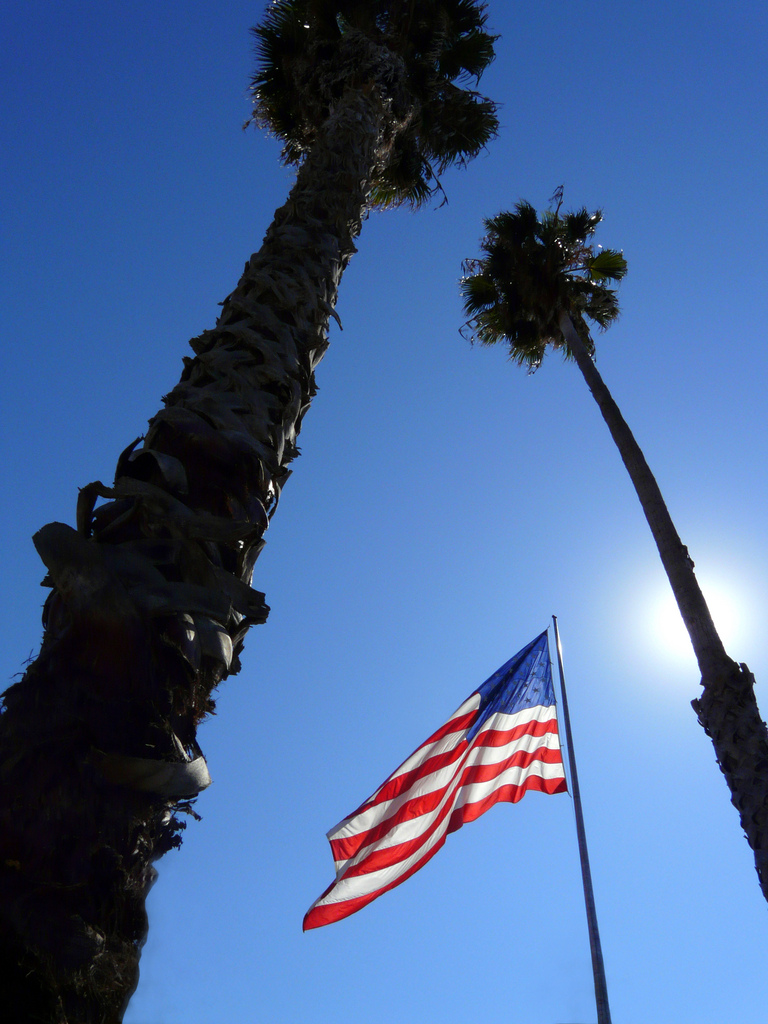 A few days ago, Ann Bingley Gallops responded to one of my Triberr tweets that shared a blog post Patrick Reyes had sent out.
A few days ago, Ann Bingley Gallops responded to one of my Triberr tweets that shared a blog post Patrick Reyes had sent out.
The post itself shared Nosh’s quite innovative video that they use as part of their “404 Not Found” page. Ann said that “she thought it turned funny until it turned violent,” and then followed up by explaining that she is Norwegian, so perhaps her sense of humor was a bit stunted right now (and I really assume you know what she’s referring to).
Now, I met Ann a few years ago when I was interested in Feng Shui (she’s awesome, by the way, if you’re looking for someone to help you with that, you should hire her), and she always seemed quintessentially American to me.
I had no idea that she was Norwegian, either literally, or of Norwegian heritage.
And this made me think… but before I go any further, here’s the Nosh video (I still think it’s very funny and extremely creative).
So… this made me think: if you define yourself as belonging to a certain country but have “foreign” roots, how many generations does it take for you to consider yourself of that country?
For example, I am, by at least one definition, a 1st-generation American, since I’m a naturalized citizen. I don’t call myself “Indian” any more, but an American “originally from India,” or “with Indian roots.”
I asked the question both on Facebook and Google+, and received some really interesting answers.
From Facebook:
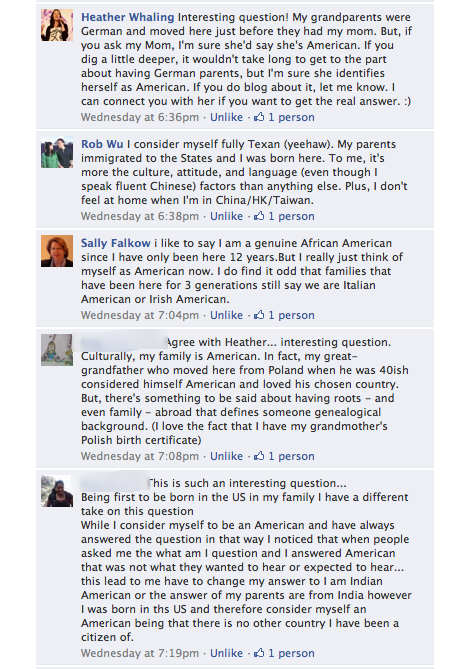
And from Google+:
There were many, many more answers – these are just a few. And I’ve blurred the names of those who may not want to be publicly identified, though I did specify in my original question that this might be blog fodder.
I’m still thinking about this (as you can tell), and wondering what makes someone relate to being “of” a particular country. Or whether, as in Shel’s parents’ case, it wasn’t a country at all, but a religious (or maybe ethnic) identification.
And I’m starting to wonder if this impacts not just how we perceive the world and the world around us (I think it does), but whether it impacts how we, as public relations practitioners, need to focus – or broaden – our programs and outreach.
But before we get to that part of the conversation, please will you tell me: if you’re an “American,” what makes you so? If you have non-American roots, do you identify more strongly with those roots, or with your country of adoption (or maybe even birth)?
If you’re a citizen of a different country but in a similar situation, how do you feel?
Please do share.
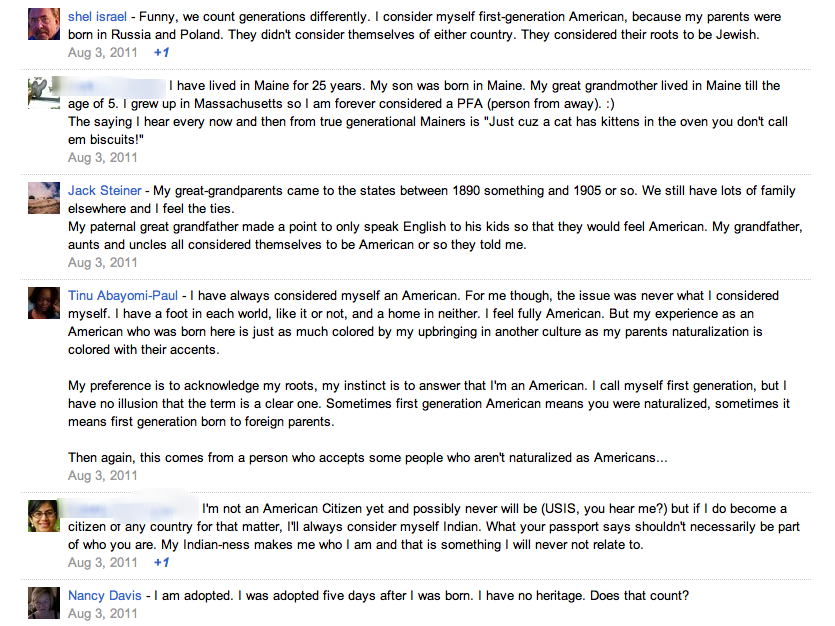
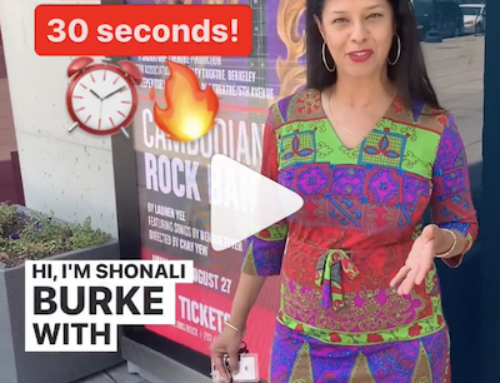
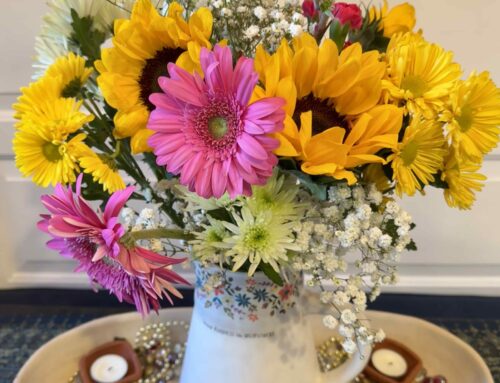

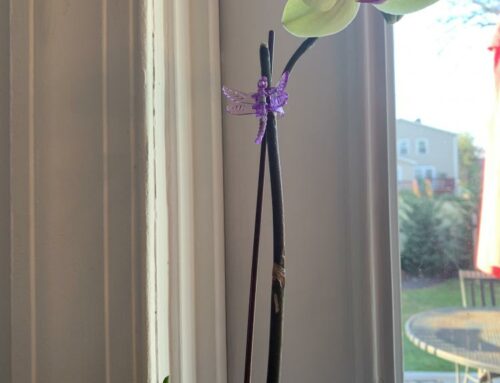
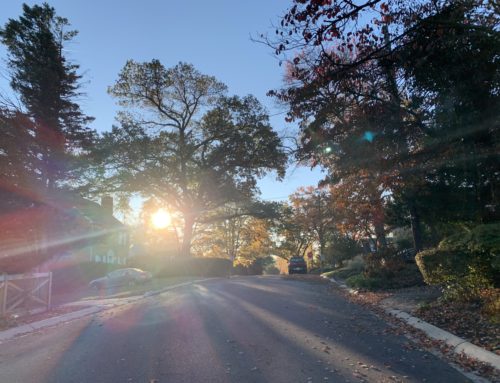
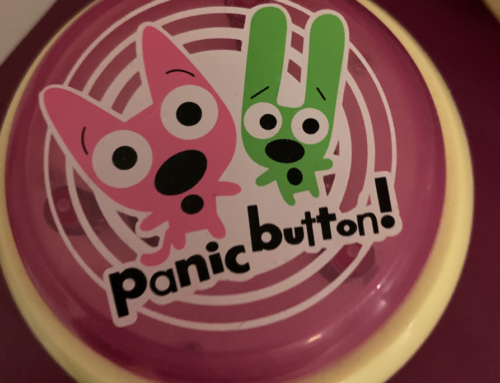

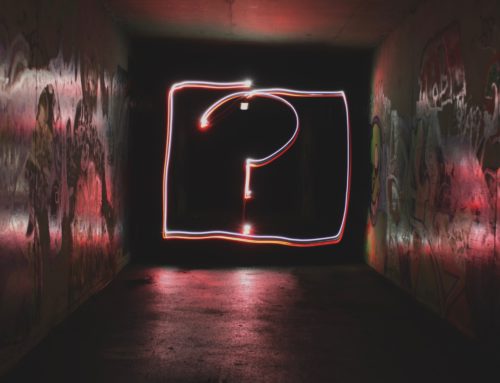
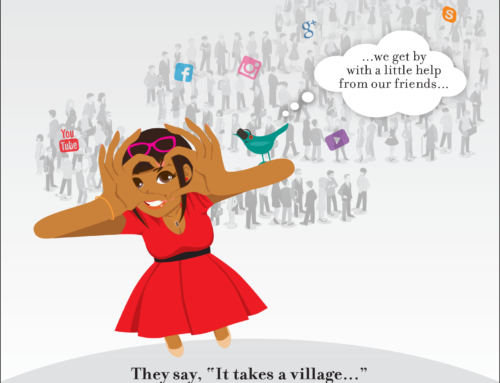
[…] you wonder how this translates online, look at this post on ethics by Gini Dietrich, or what makes you, you by Shonali Burke, perhaps Ingrid Aboud on 17 things about […]
@Lori HAHAHAHAHAAH!!!!!
@JGarant Now I’m picturing you running through a “Mamma Mia!” like setting…
@Shonali No I don’t speak Greek- my brother and I were were never baptised in the Greek Orthodox church- nor were we made to learn Greek. In fact, as a student I studied French in early high school, then Indonesian all the way through to the end of my undergraduate university study. Excellent question regarding Greece. My brother and parents are currently there on holiday. I can’t speak for my Dad who was born there, but for me there’s always a connection- an undeniable link to our heritage and the story of my father and grandparents who moved half a world away to Australia back in the 1950s. Perhaps that’s why we refer to it as ‘the motherland’. However if you were to stop me and ask my nationality, I’d say Australian- but I would never deny my Greek heritage.
@Shonali Sorry – I should have said Sydney NOVA SCOTIA! LOL
I was born and raised in Canada – how to confuse someone right!?
:-)
@Lori Hi Lori! Your story is really interesting. Do you consider yourself Australian at all, or having some Australian qualities, since you grew up there?
@Lori Hi Lori! Your story is really interesting. Do you consider yourself Australian at all, or having some Australian qualities, since you grew up there?
@Shonali I am starting to “adopt” some of the Chinese culture a bit yes. I find it very interesting to learn about everyone’s background.
I like learning new things anyway, so being exposed to new things culturally is a great experience for me.
Yes, I’m always alert to the Lebanese “look”! Hi John, Hi Shonali!
I was born to a Canadian father and an American mother but both were not far removed from their Lebanese roots. The Lebanese society was active in Sydney were I grew up and Lebanese food was and still is common on Sundays and at special gatherings. So I always considered myself Canadian with Lebanese heritage, identifying with my Lebanese culture and having the Lebanese “look” ;-)
Interesting post Shonali!
Lori
@Billy_Delaney Wow, I didn’t know that the Irish can have 3 passports. Is it the same for the Welsh and the Scotch?
I don’t feel “really” American in the sense of being born here, and I doubt I ever will. But there are a lot of characteristics of the native-born people of this country I identify with.
Roll on, Billy!
@BetsyKCross Split personality, eh? ;) j/k
Most people I’ve met – especially here in the US – have some interest in their ancestry and heritage. However, I do know one person who has absolutely no interest in her heritage and, moreover, denies it completely. I’m not sure why.
@BetsyKCross Split personality, eh? ;) j/k
Most people I’ve met – especially here in the US – have some interest in their ancestry and heritage. However, I do know one person who has absolutely no interest in her heritage and, moreover, denies it completely. I’m not sure why.
@NancyD68 When I read your comment over at Google+, Nancy, and then again here, I thought – the upside is that you get to make your life exactly the way you want to, without any preconceived notions, or family “baggage” to weigh you down. But I do see what you’re saying, especially about the health concerns.
Do you think you’re “adopting” your boyfriend’s Chinese heritage? How neat that you’re learning about that culture!
@John Falchetto Just fyi, and IMHO, I think you got the best possible combination of those genes that you could have. And WOW – what a heritage. That’s awesome.
I think where we live does make some kind of difference, though I don’t know if it’s one that matters. For example, having lived in the US for 11+ years now, I react differently to things than I would have done had I still been living in India (or anywhere else, I suspect). There’s a certain rhythm of life here that I’m used to, even though it sometimes drives me nuts. I honestly don’t know if I could get used to the Indian rhythm of life again… though I suppose if I were there long enough, I would.
@JGarant Do you speak Greek, Jamie? What’s it like when you go to Greece… do you feel a part of it, or not – even though you’re “Aussie through and through”?
@hackmanj I find Indian culture fascinating too… though I guess that’s not all that surprising, eh? ;) Yes, the names are really interesting. You can’t always tell someone’s religion, though (you can if they have a Goan surname), but you can usually tell which part of India they’re from, and also what caste they were born into (or would have been, if they are Hindu. For example, my maiden name would tell you what the original caste of my father’s family was, but they converted to Christianity several generations ago).
And that’s a very nice thing to say about immigrants… but yes, I have also seen that they tend to appreciate what they have/the opportunities they are given a little more… speaking generally, that is.
@bdorman264 A 5th generation Floridian! Well, that makes you quite unique… and totally not invisible. Hey, if you find those Dormans, remind me to tell you of that wiggly line that connects my ancestry to yours …
My week was great, Bill – thank you and I hope yours goes well too!
@KenMueller Those different lenses are what makes things interesting, don’t they, Ken?
I have access to several passports.
Irish because I was born there.
British because the part of Ireland I was born in is a part of Britain.
European passport because I am gouped with them.
American because I am a naturalized citizen, 30 plus years now.
I have lived on three continents, oceans and seas and I’m not done yet!
At the core I am an Irishman by birth and an American by choice.
However, my natural inclination and soulish attachments are to Ireland, the roots of the matter.
Yet! I feel uprooted and not really American in the sense of being born here American.
I like Bill Dorman, feel like I am a Southener, and love Florida, it’s as home as I get in America!
Your Irish rolling stone.Billy
In family history research I see a common emotional thread (actually a few).Everyone wants to know where they came from (ancestry AND heritage ) even if they like where they’ve ended up. People like “badges of honor”, I like to call them; things them make them unique. Children love to know that their ancestors were cool and from different countries. Even people like Nancy (below) are curious because, like it or not, we’re influenced by our past. But the way we are perceived is also influenced by where we live, or where we call “home”. I would always call myself an American. But I would just as easily say I’m Norwegian, French. Swedish, and English. I don’t think you can separate the two (heritage and nationality) unless the conversation requires it. Depends on which “me” you’re asking!
I was adopted five days after I was born. I identify with being American, not with any other thing. I have wondered about the circumstances of my birth. I am happy to know that people who are adopted today have access to their medical records and can find out about their birth parents. My records are sealed. I have no idea who I look like, who I take after, and most importantly I have no idea if there are any health concerns running in my family.
My boyfriend is half-Chinese (his father is from Taiwan) and he has been educating me about Asian culture. We actually spent the day last Sunday at an Asian market just walking around, shopping and he introduced me to some new foods. If you were to ask my boyfriend if he identifies as Chinese, he would tell you that he identifies more with being American, though he does celebrate Chinese New Year and has certain customs and mannerisms that are from his upbringing.
I find conversations about heritage to be very interesting. Perhaps because I have none, I am highly interested in other people’s.
As an expat this is a at the core of our search for an identity. My mother is Canadian from Scottish roots, my father had a Chinese mother and an Italian father. He was born in what is now Vietnam.
I have never really grown up feeling I belong to a specific country or people. We celebrated Christmas at home but also Chinese new year.
I have a Canadian passport and also a French one. Will I ever be identified as French? Not in a million years, does it matter? I don’t think so. What does it mean to be American or Canadian or French these days?
I guess where we live matters or maybe not? I’m Canadian but most people including lorigosselin think I have Arab ancestors. So does the way we look matter? For sure because when I tell people I’m Canadian they always ask where I am originally from.
I don’t believe in putting labels on people because in this globalized world, it doesn’t mean anything. Our values is what makes us who we are.
Excellent question @Shonali . I was born in Australia. My mother was born here, but my father came to Australia from Greece at the age of 5 (he’s now 57). My grandma still speaks Greek, with vert little English- and is hoping to go back to Greece one last time. While my Dad is fluent in Greek as well as English, he most certainly considers himself an Aussie, and my brother and I are Aussies with Greek heritage. If ever we visit family in Greece it’s always a wonderful experience, but we are Aussies through and through. If one day any of us were to move or live overseas, I’m sure we’d consider ourselves Aussies with Greek heritage living in whichever country we’re in… and hey, isn’t that the wonderful thing about this multicultural world of ours :)
I usually tell people I am German/Portuguese but consider it obvious that I am American. I find people’s origins to be fascinating and I’ve had many conversations with people about theirs. I like learning about other cultures and I’m happy to share what I know about mine (not so much, but there is some fun/funny stuff I learned from my grandmother). I would actually like to learn more about my roots and I praise all those people building up the genealogy base so when I do have time there will be less work to do ;).
Ironically I find Indian culture fascinating Shonali, the various dialects, how you can tell people’s (family) religion by their names, very cool stuff.
Final point, I think immigrants to this country can really teach those of us born here a whole lot about being American. For one I find that in general they tend to appreciate the opportunities present and provide a lens into how LUCKY we are to be here.
I usually tell people I am German/Portuguese but consider it obvious that I am American. I find people’s origins to be fascinating and I’ve had many conversations with people about theirs. I like learning about other cultures and I’m happy to share what I know about mine (not so much, but there is some fun/funny stuff I learned from my grandmother). I would actually like to learn more about my roots and I praise all those people building up the genealogy base so when I do have time there will be less work to do ;).
Ironically I find Indian culture fascinating Shonali, the various dialects, how you can tell people’s (family) religion by their names, very cool stuff.
Final point, I think immigrants to this country can really teach those of us born here a whole lot about being American. For one I find that in general they tend to appreciate the opportunities present and provide a lens into how LUCKY we are to be here.
I usually tell people I am German/Portuguese but consider it obvious that I am American. I find people’s origins to be fascinating and I’ve had many conversations with people about theirs. I like learning about other cultures and I’m happy to share what I know about mine (not so much, but there is some fun/funny stuff I learned from my grandmother). I would actually like to learn more about my roots and I praise all those people building up the genealogy base so when I do have time there will be less work to do ;).
Ironically I find Indian culture fascinating Shonali, the various dialects, how you can tell people’s (family) religion by their names, very cool stuff.
Final point, I think immigrants to this country can really teach those of us born here a whole lot about being American. For one I find that in general they tend to appreciate the opportunities present and provide a lens into how LUCKY we are to be here.
American by birth, southern by the Grace of God? I have done a little genealogy research and know on the direct Dorman line I can trace to North Carolina around 1790; and also know they just kept migrating south from there. I’m actually a 5th generation Floridian but it is not uncommon to hear people say ‘nobody is born in Florida, are they’?
Across the pond, I’m not sure. I always assumed English, but now finding it could be German or even Irish.
Ultimately, we all trace back to the proverbial Eve which was a little black lady in central Africa, huh?
I don’t care where I’m from, I just want to find some dang Dormans with some money they can leave me.
Hola ma’am, hope your week is going well.
For me, I’m American. Pennsylvanian. Originally a Philadelphian. My family came from Germany, and I’m interested in my German roots, but it was at least 3 generations ago (great-grandparents). But I think it goes beyond that. I gave a presentation a few years back called “What’s in a name?” where I addressed the names we all where. Not just nationality, but for me, I view things thru a lot of lenses: Father. Husband. White Male. Marketer. Radio Guy.
And for others, like Shel’s family, it might be an affiliation of faith or heritage. Others might view things thru the lens of a Doctor or Lawyer. Or as a Widow.
And that’s where it gets sticky. From a marketing stand point, we are dealing with a lot of customers on the other end who are individuals, each with their own background, and perhaps, “baggage”. What might be funny to one is insensitive to another. I know that when I’m around certain friends I have the freedom to say certain things. But when a specific friend is there I might avoid jokes about divorce, or death, or whatever, because I know it will strike a raw nerve or negative chord with them. It’s about knowing your audience, which is even trickier when you are dealing with a larger, more anonymous group.
I have no answers other than being careful and sensitive.